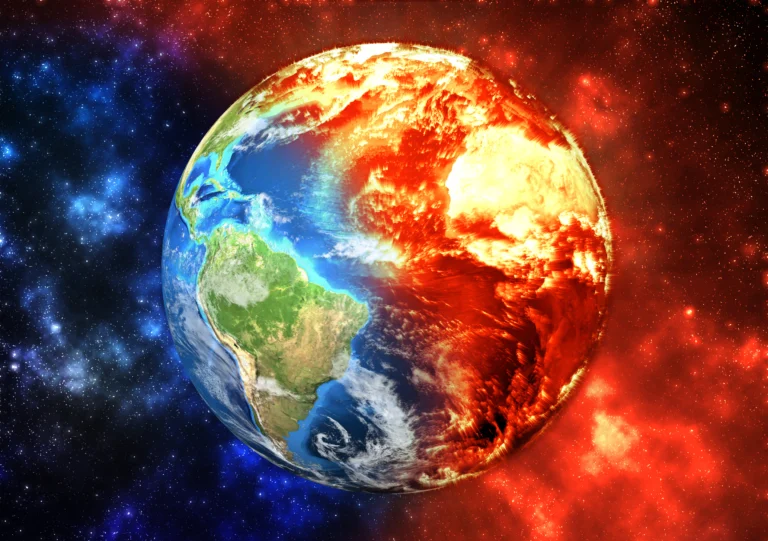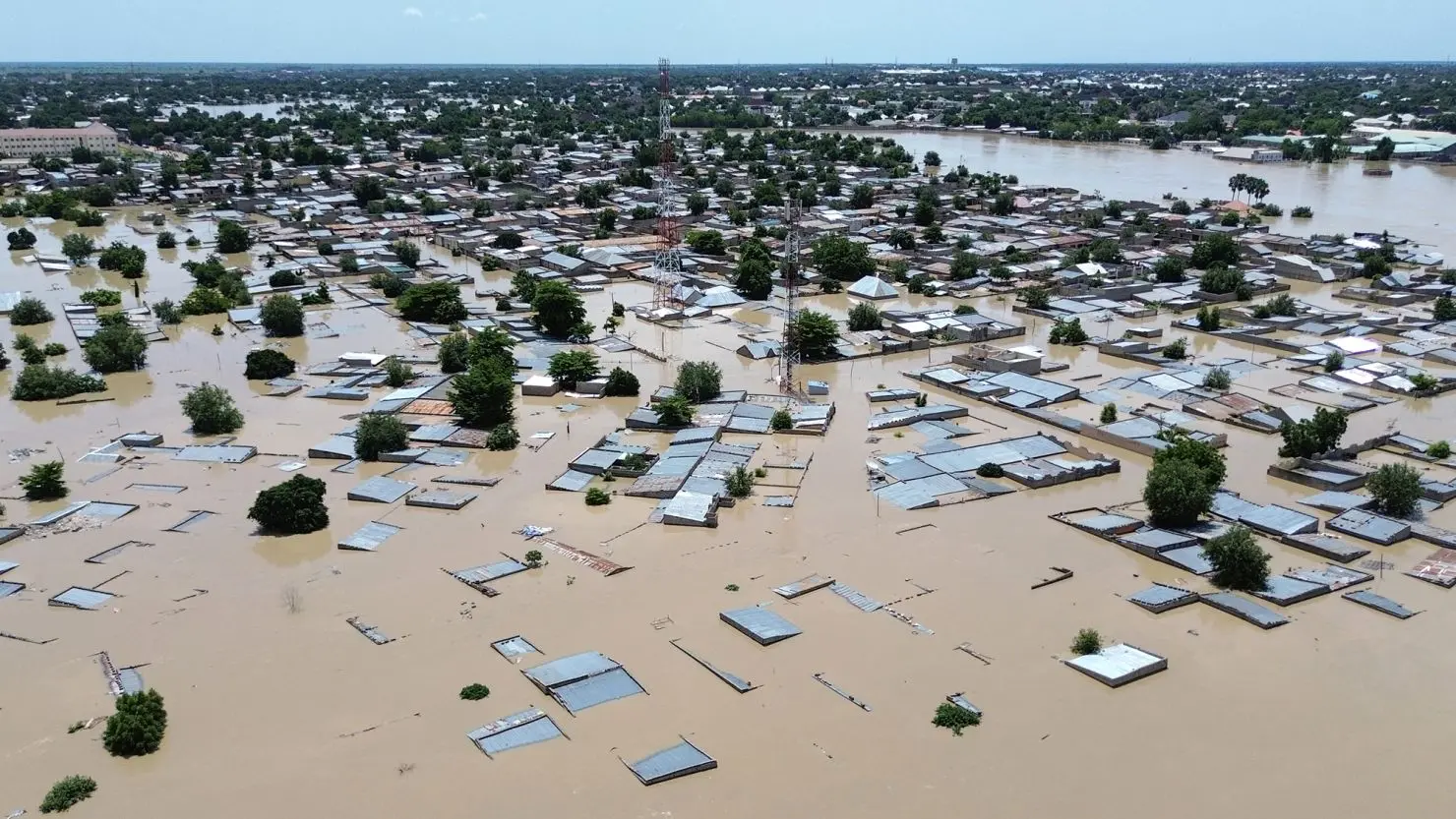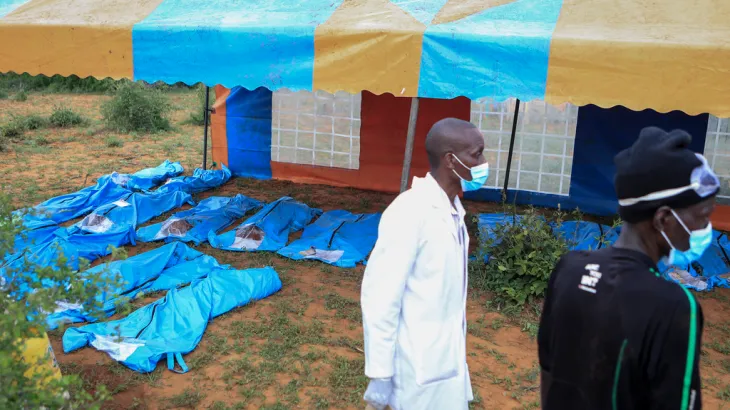Climate Crisis in 2025: Unprecedented Heatwaves and the UN’s Urgent Call

Planet Earth – ecology concept, global warming concept, the effect of environment climate change. Elements of this image furnished by NASA (https://visibleearth.nasa.gov/)
July 30, 2025 Hour: 2:30 pm
An Extreme Summer Marked by Heatwaves in 2025
The year 2025 has witnessed unprecedented heatwaves globally, with record-breaking temperatures in numerous regions, particularly in the Mediterranean and Europe.
Countries like Turkey and Cyprus reported highs above 45°C, while the Mediterranean Sea recorded temperatures 9°C above historical averages.
According to reports from the United Nations (UN), Mediterranean areas have endured at least three heatwaves during the summer, wreaking havoc on public health, the environment, and the economy.
Since 2024, experts and international organizations warned of the progressive increase in these heatwaves, recommending stronger prevention and early response systems.
However, these warnings have not been enough to prevent over 1,500 heat-related deaths in Europe alone, primarily among the elderly and vulnerable groups.
The climate crisis has driven temperature increases of 1 to 4°C during these extreme events, exacerbating their severe impacts.
Heatwaves: A Silent Killer with Devastating Effects
Known as “silent killers,” heatwaves severely affect those with heart, respiratory, or metabolic conditions.
In Spain alone, between May and June 2025, over a thousand heat-related deaths were estimated, most of them elderly.
Meanwhile, Europe as a whole could face around 175,000 annual deaths attributable to high temperatures.
Unlike past heatwaves that typically lasted one or two days, recent episodes have extended up to two weeks, increasing exposure and health risks.
June stood out as one of the hottest months, with peaks above 38°C in multiple countries, triggering massive wildfires in Greece and temporary closures of tourist sites and urban centers.
The warming of the Mediterranean Sea and its interaction with continental hot air intensify these phenomena, affecting not only Europe but also various regions worldwide.
Global Reach of 2025’s Heatwaves
Europe
Beyond Spain, countries like Portugal, France, Italy, Greece, and northern regions such as Germany, Belgium, Switzerland, and the UK recorded anomalous temperatures. Scandinavia experienced over 15 consecutive days with highs above 30°C, unusual for the season.
Latin America
In Chile, the government issued warnings as forecasts predicted temperatures near 43°C for the central region in February. Brazil also saw delays in school start dates due to extreme heat, impacting productive sectors across the subcontinent.
United States
During June and July, over 100 million people received heatwave alerts, with particularly intense hotspots in the West and Southwest, where temperatures consistently exceeded historical averages.
Asia
According to the World Meteorological Organization (WMO), Asia’s rate of temperature increase is nearly double the global average.
Recent studies show that warming between 1991 and 2024 was almost twice that of the 1961–1990 period.
The loss of glacier mass in the Himalayas and Tian Shan poses alarming risks of floods, landslides, and long-term water shortages.
Severe Impacts on Health, Environment, and Economy
Public Health
Heatwaves cause heatstroke, brain damage, organ failure, and, in extreme cases, death. They also trigger symptoms like dizziness, nausea, cramps, and dehydration, disproportionately affecting children, the elderly, and those with chronic illnesses.
Additionally, they worsen cardiovascular, respiratory, and kidney conditions, diabetes, and mental health disorders.
The UN and health organizations demand urgent implementation of monitoring systems, adaptation plans, and climate mitigation policies to protect vulnerable populations.
Environment
Rising temperatures spark massive wildfires, like those in Greece in late June, which required over 200 firefighters and forced mass evacuations. These fires isolate ecosystems and lead to crucial biodiversity loss.
Extreme heat also accelerates drought and desertification, harming vegetation and crops, with major risks to global food security.
Heatwaves further disrupt weather patterns, triggering extreme events like storms, hurricanes, and floods, which damage infrastructure and displace families.
Economy and Society
Sectors like agriculture, construction, and mining face significant losses due to extreme conditions. Physical labor becomes riskier and less efficient, contributing to an expected global 2.2% drop in work hours by 2030, equivalent to $2.4 trillion in GDP losses.
Increased energy demand for cooling overloads power grids, causing blackouts and supply shortages. Inequitably, impoverished populations suffer the most, lacking means to protect themselves from heat or access adequate healthcare.
Extreme heat has also led to temporary school and business closures, public transport disruptions, and water-use restrictions due to shortages.
UN Statements in 2025: Science Demands Immediate Action
The UN continues to warn about the severity of the climate crisis with stark reports:
- IPCC (Intergovernmental Panel on Climate Change): The Sixth Assessment Report (AR6) confirms global warming is unequivocally caused by human activity. The global average temperature has risen nearly 1.1°C since pre-industrial times, increasing risks of extreme events and warning of tipping points that could trigger irreversible changes.
- WMO: Reports record levels of greenhouse gases, global average temperatures between 1.34°C and 1.41°C above pre-industrial levels, and a significant rise in climate-related disasters.
- UNEP (United Nations Environment Programme): Highlights insufficient commitments to meet Paris Agreement goals, projecting emissions will sustain warming above 2.5°C. It also condemns planned fossil fuel production for 2030 as double what’s compatible with the 1.5°C target.
Secretary-General António Guterres emphasizes that the world is in a climate emergency, with the window for action closing fast. He stresses the urgent need to halve emissions by 2030 and end the fossil fuel era, advocating for a just and inclusive transition that protects vulnerable communities.
COP30 in Brazil: A Turning Point?
The COP30 conference in Brazil this year marks a crucial moment to advance global climate action agreements. André Aranha Corrêa do Lago, COP30’s elected president, underscores the importance of multilateralism, science, and effective implementation of commitments.
Key priorities include accelerating the energy transition, operationalizing the Loss and Damage Fund, protecting the Amazon, and advancing National Adaptation Plans.
The goal is to strengthen international cooperation, integrate local and Indigenous communities, and promote technological innovation.
COP30 will be a decisive opportunity for countries to take real action to mitigate and adapt to the climate crisis, driving a more sustainable and equitable future.
The Threat of 2025 and an Urgent Call for Hope and Action
The extreme heatwaves of 2025 starkly illustrate the severity of the climate crisis. Their devastating impacts on health, the economy, and the environment confirm scientific warnings and the UN’s unequivocal statements. This year has undeniably shown the tangible, accelerating threat of a warming planet.
Facing this reality, the UN’s message is clear: a climate emergency demands urgent, coordinated, and just responses from all sectors and nations. Yet, there is also hope.
The upcoming COP30 in Brazil is a key platform to turn commitments into concrete action, fostering global cooperation and innovation.
The international community must seize this opportunity to build a safer, more inclusive, and sustainable future, one where humanity mitigates warming’s effects and adapts to unavoidable changes.
Author: Silvana Solano
Source: TeleSUR






